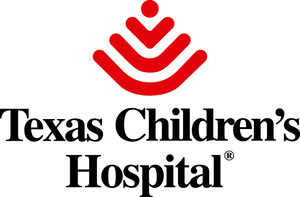Texas Children's Hospital Fetal Center performs first successful fetoscopic repair to treat spina bifida in the United States
HOUSTON, Sept. 4, 2014 /PRNewswire-USNewswire/ -- Physicians at Texas Children's Fetal Center and Baylor College of Medicine proudly announce the completion of the first two-port fetoscopic procedure to repair spina bifida in-utero. It is believed that this is the first time this type of fetoscopic procedure has been performed in the United States.
The fetoscopic approach was developed by Dr. Michael Belfort, obstetrician and gynecologist-in-chief at Texas Children's Hospital and Dr. William Whitehead, pediatric neurosurgeon at Texas Children's Hospital. This surgery was over three years in the making and features an in-utero, single layer, sutured repair through only two, four millimeter incisions in the uterus. A carbon dioxide gas technique was used to aid the physicians during the fetal repair of spina bifida. The team worked collaboratively with Dr. Jose Luis Peiro and Dr. Elena Carreras of Vall D'Hebron Hospital in Barcelona, Spain.
Myelomeningocele, or open neural tube defect (NTD), is a form of spina bifida that occurs in 3.4 out of every 10,000 live births in the U.S. and is the most common permanently disabling birth defect for which there is no known cure. Myelomeningocele is a developmental defect in which the spine is improperly formed and the spinal cord is exposed and fused with the skin. It is usually associated with hydrocephalus, or the buildup of cerebrospinal fluid in the brain, which requires surgical treatment to drain the fluid via an implanted device called a shunt. Previously, closure of the defect occurred after the birth of the baby, or in the first days of life, which was associated with an 80-90% chance that a shunt will be required and remains for life.
The landmark clinical trial, known as the Management of Myelomeningocele Study (MOMS), demonstrated that a fetal surgical repair leads to lower rates of hydrocephalus, decreased the need for a cerebrospinal fluid shunt, and improved leg function compared to standard after-birth repair of this condition. On average, the group treated before birth had better outcomes. Texas Children's Fetal Center adopted this as a treatment option and began open fetal surgery to treat spina bifida in 2011. Texas Children's Fetal Center is among a few centers in the country able to perform this complex in-utero repair and has been successful with their open cases, with the average gestational age at the time of delivery of 34 to 35 weeks. Only 2 of the 23 cases performed at the Texas Children's Fetal Center have required treatment for hydrocephalus.
The team at Texas Children's Hospital wanted to build upon the success of the MOMS trial by performing the same surgery on the fetus but with a focus on reducing the risks to the mother. The current open fetal surgery technique involves a uterine incision to allow the open surgical repair. This incision may cause maternal complications. The teams at Texas Children's Fetal Center and Vall D'Hebron Hospital ultimately developed a new way to perform fetoscopic surgery. A fetoscope is a small telescope and can be combined with tiny instruments allowing surgery inside the uterus without the need for the 5-6cm centimeter opening that is required on the mother's uterus for an open procedure. The new, experimental technique was designed to counter the risks including preterm delivery and poor healing of the uterine scar, as seen with previous attempts. In addition, this procedure may permit the fetus to be born vaginally, rather than with the c-section required for all other babies with spina bifida.
Years of preparation and training went into developing the program both domestically and internationally. The procedure had been performed on fetal sheep and considered to be technically feasible. Texas Children's Hospital supported the international effort from the beginning. In order to refine this minimally invasive fetoscopic approach, the team built a low-cost simulator using a child's kickball that replicated the mother's uterus. Inside the kickball, a doll covered in chicken-skin acted as the fetus including a spina bifida defect on the doll's back. Drs. Belfort and Whitehead practiced closing the defect using a team approach in which they both carry out specific parts of the surgery in a coordinated fashion. The two surgeons performed more than 30 simulated procedures using the simulator including two full simulations, gowned and gloved under actual OR conditions with a full support team.
With a multi-disciplinary structured program in place, clinical planning and training and full Institutional Review Board approval for this experimental procedure, the team at Texas Children's Hospital performed the in-utero spina bifida fetoscopic closure on their first patient on July 30, 2014. The case went smoothly and so far, the mother and fetus are doing well.
"While we have had a technical success with this procedure, we will only be able to truly know the outcome once the baby has been delivered and we are able to assess the spina bifida repair," says Dr. Whitehead, who is also Assistant Professor of Neurosurgery at Baylor College of Medicine.
"It is important to note that this mother has not been exposed to a significant uterine incision and we are much less concerned about her risk of a ruptured uterus during this pregnancy than we are after an open repair," added Belfort, who is also professor and chairman of the department of obstetrics and gynecology at Baylor College of Medicine. He went on to say that the risks of preterm delivery, the need for cesarean section for every delivery, and the risks of uterine rupture and abnormally adherent placenta (placenta accreta) in subsequent pregnancies after open fetal surgery all make the fetoscopic approach attractive.
In addition to an expert operating room team and nursing staff, a multidisciplinary team of specialists led this first surgery at Texas Children's Fetal Center, including:
- Dr. Michael Belfort, obstetrician and gynecologist-in-chief at Texas Children's Hospital Pavilion for Women and professor and chairman of the Department of Obstetrics and Gynecology at Baylor College of Medicine
- Dr. William Whitehead, pediatric neurosurgeon at Texas Children's and assistant professor neurosurgery at Baylor College of Medicine
- Dr. Alireza Shamshirsaz, maternal fetal specialist at Texas Children's Hospital, and assistant professor, Department of Obstetrics and Gynecology at Baylor College of Medicine
- Dr. Oluyinka O. Olutoye, pediatric surgeon and co-director of the Texas Children's Fetal Center, and professor of surgery, pediatrics, and obstetrics and gynecology at Baylor College of Medicine
- Drs. Olutoyin A. Olutoye, and David Mann, pediatric and fetal anesthesiologists at Texas Children's Hospital and Department of Anesthesiology at Baylor College of Medicine
- Dr. Rodrigo Ruano, maternal fetal specialist and co-director of the Texas Children's Fetal Center, and professor in Department of Obstetrics and Gynecology at Baylor College of Medicine
"Our hope is that these types of innovations will lead us to a new era of fetal medicine and surgery," says Belfort. "Personally, with the ever-advancing technology and imaging capabilities and dedicated surgeons, I am excited to see what the future holds when it comes to repairing anomalies fetoscopically. I am so impressed by what can be achieved with our exceptional team. We look forward to an uneventful delivery and a healthy baby."
Texas Children's Fetal Center is located on the fourth floor of Texas Children's Pavilion for Women and is one of only a handful of facilities in the world to offer a full spectrum of maternal and fetal care. Comprehensive services include management of any complex pregnancy, genetic counseling and the full range of fetal diagnostic procedures. The Fetal Center also provides highly specialized fetal surgeries for a number of congenital malformations. Texas Children's Fetal Center is among the nation's leaders in providing high-risk maternal care and the diagnosis and treatment of abnormalities in unborn and newborn infants.
For more information, please visit women.texaschildrens.org/fetalcenter/
About Texas Children's Hospital
Texas Children's Hospital, a not-for-profit health care organization, is committed to creating a healthier future for children and women throughout the global community by leading in patient care, education and research. Consistently ranked as the best children's hospital in Texas, and among the top in the nation, Texas Children's has garnered widespread recognition for its expertise and breakthroughs in pediatric and women's health. The hospital includes the Jan and Dan Duncan Neurological Research Institute; the Feigin Center for pediatric research; Texas Children's Pavilion for Women, a comprehensive obstetrics/gynecology facility focusing on high-risk births; Texas Children's Hospital West Campus, a community hospital in suburban West Houston; and Texas Children's Hospital The Woodlands, a second community hospital planned to open in 2017. The organization also created the nation's first HMO for children, has the largest pediatric primary care network in the country and a global health program that's channeling care to children and women all over the world. Texas Children's Hospital is affiliated with Baylor College of Medicine. For more information, go to www.texaschildrens.org. Get the latest news by visiting the online newsroom and Twitter at twitter.com/texaschildrens.
Contact: Christy Brunton
O: (832) 824-2645 C: (281) 684-3184
[email protected]
SOURCE Texas Children's Hospital
WANT YOUR COMPANY'S NEWS FEATURED ON PRNEWSWIRE.COM?
Newsrooms &
Influencers
Digital Media
Outlets
Journalists
Opted In






Share this article